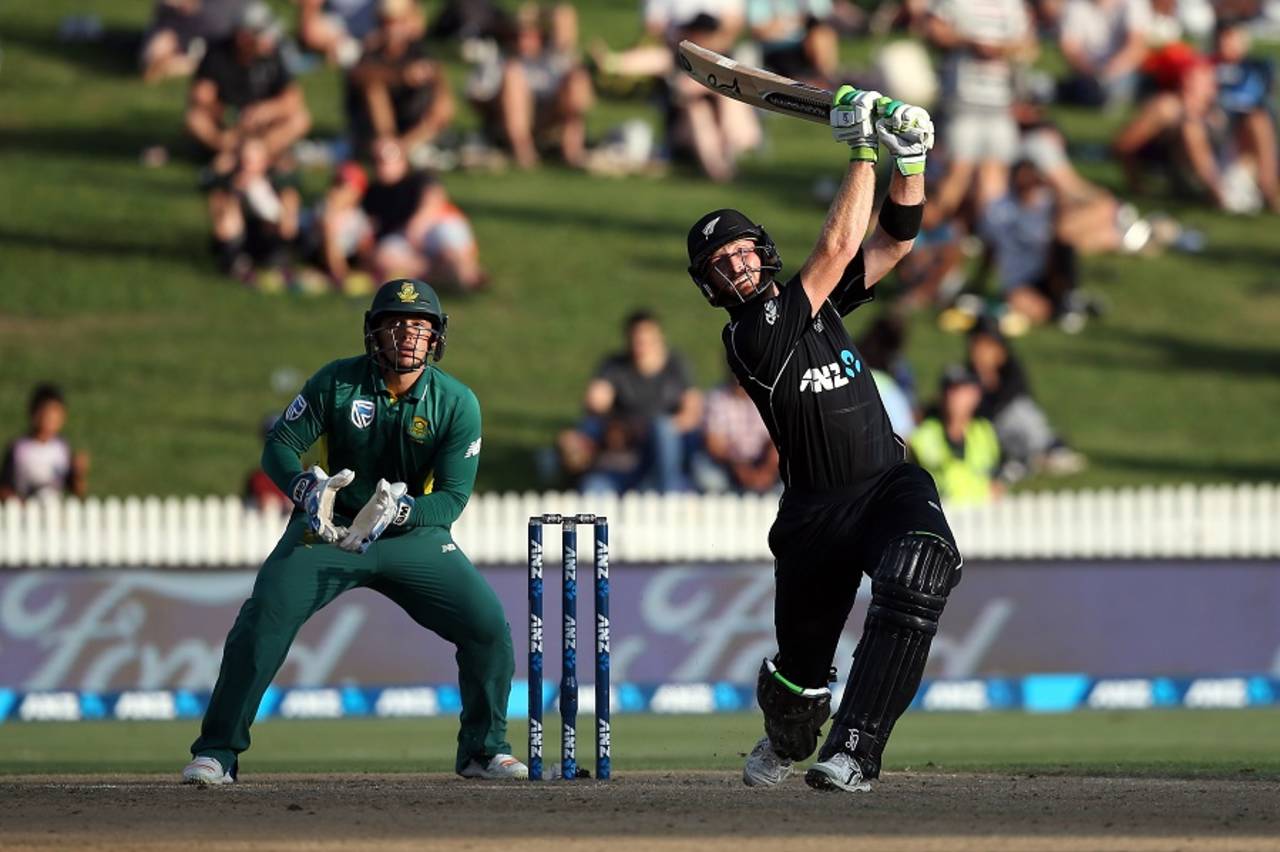How should you use DRS? In the space of six days, more than 12,000km apart, there have been examples of the right way and the wrong way when it comes to batsmen making the decision.
In Pune, within six overs of India's second innings, openers KL Rahul and M Vijay had burned both reviews. It was the culmination of an awful match with the review system for India. In the field, Virat Kohli's uncertain relationship with the technology continued when he used up both his fielding reviews in Australia's first innings by the 39th over, and in the second innings, in the space of nine deliveries, before the end of the 37th over. It's unlikely any of this changed the course of the match, but Kohli has yet to find his composure with the system.
On Wednesday
in Hamilton, New Zealand's batsmen showed how to judge it perfectly, and their decisions went a long way towards them levelling the one-day series against South Africa.
Kane Williamson was given lbw sweeping at Imran Tahir's second ball. He had laid the platform in a stand of 72 alongside
Martin Guptill. As a key batsman, the review would have been tempting, but he and Guptill took a measured approach, briefly chatted, before Williamson walked off. It was three reds on the replay.
Just three overs later, when Guptill was steaming along on 62 off 50 balls, he was given lbw to Dwaine Pretorius. Although he had provided a powerful start, 189 runs were still required, and his loss so soon after Williamson could have knocked the chase off course. But he had the review available, and, knowing he was well down the pitch, called it into action. The ball was comfortably travelling over the stumps.
After the match, the pair was asked about process. It was regaled with the lightheartedness afforded to the victors, but there was a serious point.
"Kane wanted to tee it up, but I thought it looked quite good," Guptill said with a wry smile.
Williamson responded: "In the end, I said his [Tahir's] wrong 'un turns more than his leggie, doesn't it, so I put my head down and walked off."
A composed, measured assessment.
Asked about his own review, which he again discussed with the non-striker, Ross Taylor, Guptill said: "I was always going to tee it up because I was a long way down the wicket and it hit me above the knee roll, so it was a no-brainer."
Over in Pune, Smith had said: "It's nice to have one up your sleeve for the real shocker. You don't want to guess too much on those sort of wickets. It was fortunate that their first two batters used up the reviews early."
It is usually slightly easier for two batsmen to confer over using the DRS as they can stride up the pitch, whereas a captain in the field will often have to move from his position to canvass opinion from the bowler and wicketkeeper. There are also differing levels of difficulty in judging a review, as shown by the Williamson-Guptill conversations, but the system was designed for the howler, not the gamble.
New Zealand weren't perfect in Hamilton, reviewing a caught behind appeal against Faf du Plessis which stayed with the on-field not out. Also, only having one review in ODIs (and from 2020, at the World T20), instead of the two in Tests leans players towards more caution.
Asked whether New Zealand had any set policy on their batsmen using the DRS, coach Mike Hesson indicated it was about using the 15 seconds allowed.
"We make sure the guy talks to the non-striker's end to get a bit more perspective, because, sometimes, you don't really know where you are if you lose your balance. Obviously, the discussion between Martin and Kane was pretty important yesterday, and equally as it was between Ross and Gup a little bit later. It was certainly nice to have that available."
Andrew McGlashan is a deputy editor at ESPNcricinfo
